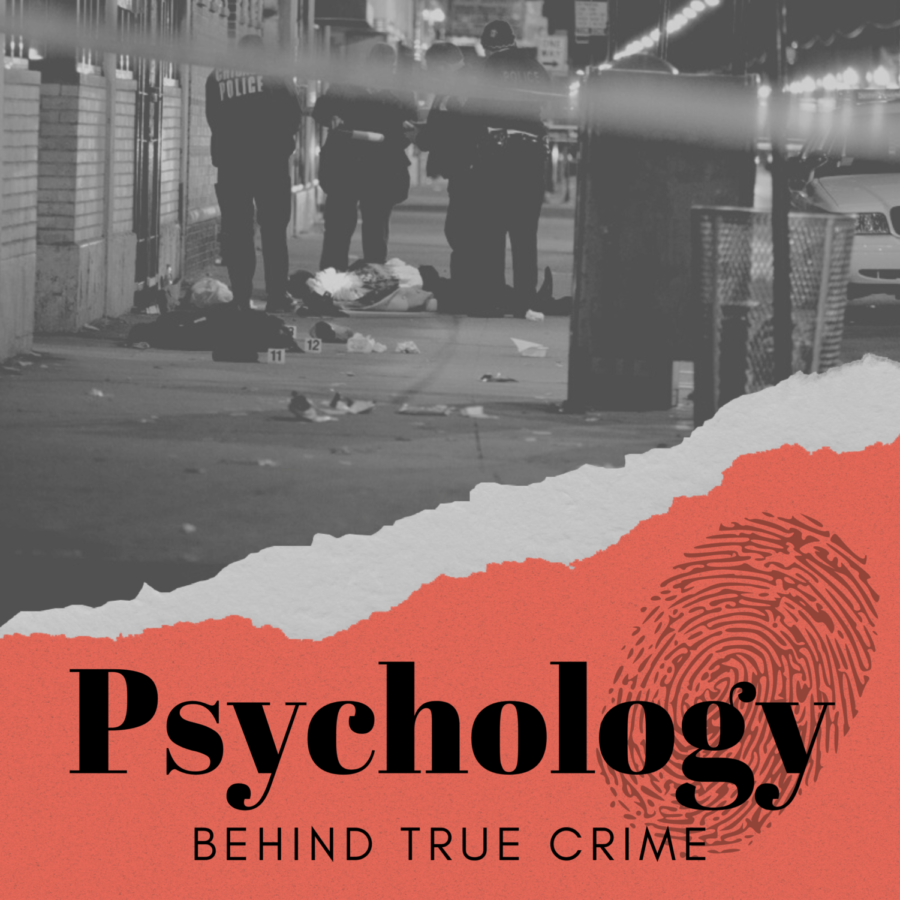Behind the Psychology of True Crime
In the last two decades, true crime has become a wildly growing genre in the entertainment industry. At every turn, we see new serial killer documentaries and shows bringing notorious serial killers such as Ted Bundy and Jeffrey Dahmer to the big screen, but why do so many people find stories about murder and brutal killings entertaining?
Many psychologists believe that this links to our natural desire to solve puzzles. The human brain is a pattern recognition system designed to keep us safe by observing behavioral patterns around us. This stems from evolutionary instincts, and our brain’s innate curiosity keeps us safe from potential predators. Much like most prey nowadays, our brains are in a constant state of fight or flight. We may no longer have any natural predators, but these instincts are still part of our psychology.
The human brain likes to solve puzzles — that’s what it was designed to do. Consequently, some psychologists believe that is why true crime is so intriguing to us. Some people just want to solve the mystery for the sake of solving it.
On the contrary, some psychologists believe that our interest in true crime is related to fear and anxiety. They believe that in order to feel safe, we consume content about brutal killings. In theory, the devil you know is better than the devil you don’t.
Knowing that, in most cases, the killers are caught and put behind bars appears to give people a sense of comfort in knowing they can’t harm us. Consuming content like this gives an opportunity to observe the darker sides of humanity from a safe distance.
A study conducted in 2010 at the University of Illinois (Vicary and Fraley, 2010) suggests that true crime is especially popular among women due to the common fear of being victimized. Being well-versed in topics like true crime gives humanity a sense of control, thinking that they can keep themselves safe if they know a lot about killers. True crime gives us a feeling of control in an otherwise anxiety-ridden world.
It is worth remembering that we are prepared to recognize certain features, helping us learn and gather information. Threatening information spreads fast, like the news about Jeffery Dahmer and Ted Bundy, or the case of Lacy and Scott Peterson. People hear about something awful, are weirdly intrigued by it, then spread it further.
Looking at this topic from the lens of the entertainment industry, true crime has all the basics of good storytelling: interesting characters, a sense of urgency to solve it, and tension that is usually released when the case is eventually solved. Among all of this, the genre’s main selling point is catharsis. Normally, we experience emotions like sadness or anger in real-world situations. These situations, such as fights or violent crimes, tend to be much more serious. Conversely, exploring these emotions in a safe environment, like your couch, can be therapeutic for some people.
“It’s really common and normal to enjoy things that involve experiencing difficult emotions in safe ways, like rollercoasters and horror movies and sad films,” said Emily Dworkin, a trauma researcher and assistant professor at the UW School of Medicine Department of Psychiatry and Behavioral Sciences.
True crime itself, despite being quite a gruesome topic, doesn’t mean that the genre is inherently bad, and having an interest in it isn’t wrong. What most people fail to realize is that true crime, like any genre, isn’t meant to reflect ordinary life. While true crime may be about real-life events, hence the name, it only highlights the rarest of crimes.












